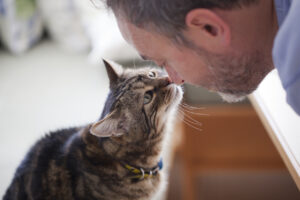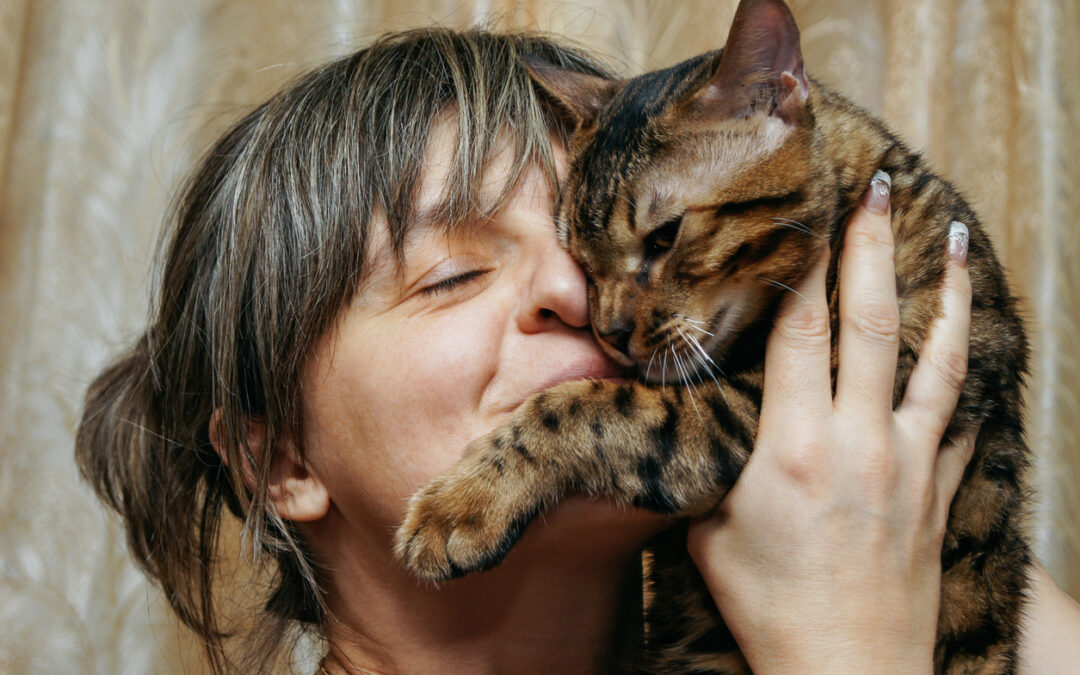Cat lovers understand cats are quite capable of expressing their affinity towards humans. In fact, a new study confirms what many of you know to be true. Cats care about their pet parents and want to be with them.
Though many believe dogs are better able to form strong attachment bonds to humans, a new study demonstrates cats are also capable of doing so. Evidence from the study indicates cats have social traits generally associated with dogs and humans.
Commonly used to study how dogs and primates interact with their caregivers, the researchers applied the “secure base test” to cats and their caregivers. The test was used to measure the bond between cats and humans. While researchers have long believed cats are neither social creatures nor easy to work with, this study provides evidence cats do in fact form attachments to their human caregivers.

The first stage of the study included 79 kittens and their caregivers. During the first two minutes, a kitten and caregiver were together in an unfamiliar room. This was followed by the caregiver leaving their pet alone for two minutes. Finally, there was a two minute reunion phase.
During reunification, researchers observed how the pet’s responded to their caregiver. Approximately 64 percent of the kittens greeted their owners when they were reunited, then they went back to exploring their surroundings. This response demonstrated secure attachment. The researchers noted these kittens showed less stress and appropriate contact when reunited with their caregiver. Thirty five percent of the kittens demonstrated insecure attachment when reunited with their caregiver. These kittens showed higher stress levels and were either clingy or avoided their owner altogether.
For the second stage of the study, 38 cats over the age of one year participated in the same experiment. Two minutes with their caregiver in unfamiliar surroundings, followed by two minutes alone then a two minute reunification period. The findings were almost identical. A little over 65 percent of the cats demonstrated secure attachment, while 34 percent were observed as having insecure attachment behaviors.
Following the experiment with the kittens, the researchers enrolled half of them in a six week socialization program. The other half did not participate. After six weeks, the experiment was repeated. Surprisingly, the findings were the same. According to the researchers, this result indicates once a cat forms a bond, no training will alter it. The bond remains stable.

According to Mikel Delgado, an animal behavior researcher at the University of California, Davis, it is plausible more cats actually have a secure attachment to their caregiver than indicated in the study. Since many cats spend most of their time indoors, a new environment would be particularly frightening. The fearful response to unfamiliar surroundings would take precedence over the secure bond some of these cats may share with their pet parent.
The researchers intend to further study the relationships which develop between cats and humans. The hope is strategies could be developed for shelters to help strengthen the human animal bond so cats feel more secure in order to make adoption easier. Dr. Kristyn Vitale, the lead author of the study, said, “The more we find out about cats, the more we’re seeing that they are social creatures and that social bonds are really important for them.”
The findings demonstrate cats have a capacity to form secure attachments with their pet parents. In addition, the study provides evidence that cats are social creatures. As Dr. Vitale said, “Cats that are insecure can be likely to run and hide or seem to act aloof. There’s long been a biased way of thinking that all cats behave this way. But the majority of cats use their owner as a source of security. Your cat is depending on you to feel secure when they are stressed out.”

